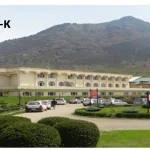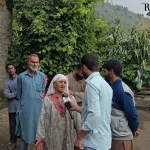In countries and states where literacy is high and people are aware about common diseases and new researches in medical science field, the overall figures are on the brighter side. By spreading awareness about diseases including their prevention, about different treatments and new researches that have proved to be of utility in medical sciences, the public health system could be improved. Many experts are of the opinion that keeping in view the unique demographic, geographical, and socio-economic characteristics of the UT there is a dire need for increased investment in medical research. The UT’s diverse population experiences diverse healthcare challenges, many of which are exacerbated by its challenging geographic terrain and lifestyle changes. The COVID-19 pandemic, from which the globe is still reeling, has laid bare the critical importance of advanced medical research. It has shown us that one-size-fits-all solutions are not always applicable or effective. Health conditions vary widely across regions and populations, and research must take into account these variations to develop targeted, effective solutions. This is especially true for Jammu and Kashmir UT, where health challenges such as high incidences of cardiovascular diseases, cancer, and mental health issues prevail. Investing in medical research in the UT is not just a matter of addressing these health challenges; it’s also a matter of equity. In addition, boosting medical research in the UT would have significant economic benefits. Investment in research can create jobs, spur innovation, and attract further investment. It can also lead to the development of new treatments and preventive measures that can save lives, reduce healthcare costs, and improve quality of life. The government, in collaboration with private sector, needs to spearhead this initiative. They can do so by investing in infrastructure, providing funding opportunities for researchers, and creating incentives for private investment. In addition, the government should encourage cooperation between institutions in Jammu and Kashmir and those in other parts of India and the world, to facilitate knowledge exchange and collaboration. At the same time, it is imperative that the research carried out is responsive to the needs of the local population. This means involving local communities in the research process, respecting and incorporating traditional knowledge and practices, and ensuring that the benefits of the research are accessible to all. Investing in medical research in Jammu and Kashmir UT is not just a necessity but a moral and socio-economic obligation. It is high time we acknowledge and address the health challenges faced by the people, and harness the UT’s untapped potential for medical innovation. The path towards a healthier Jammu and Kashmir lies in robust, localized, and inclusive medical research. That way people will benefit more and the purpose will be served. Our premier health institutes can take lead in this regard.





